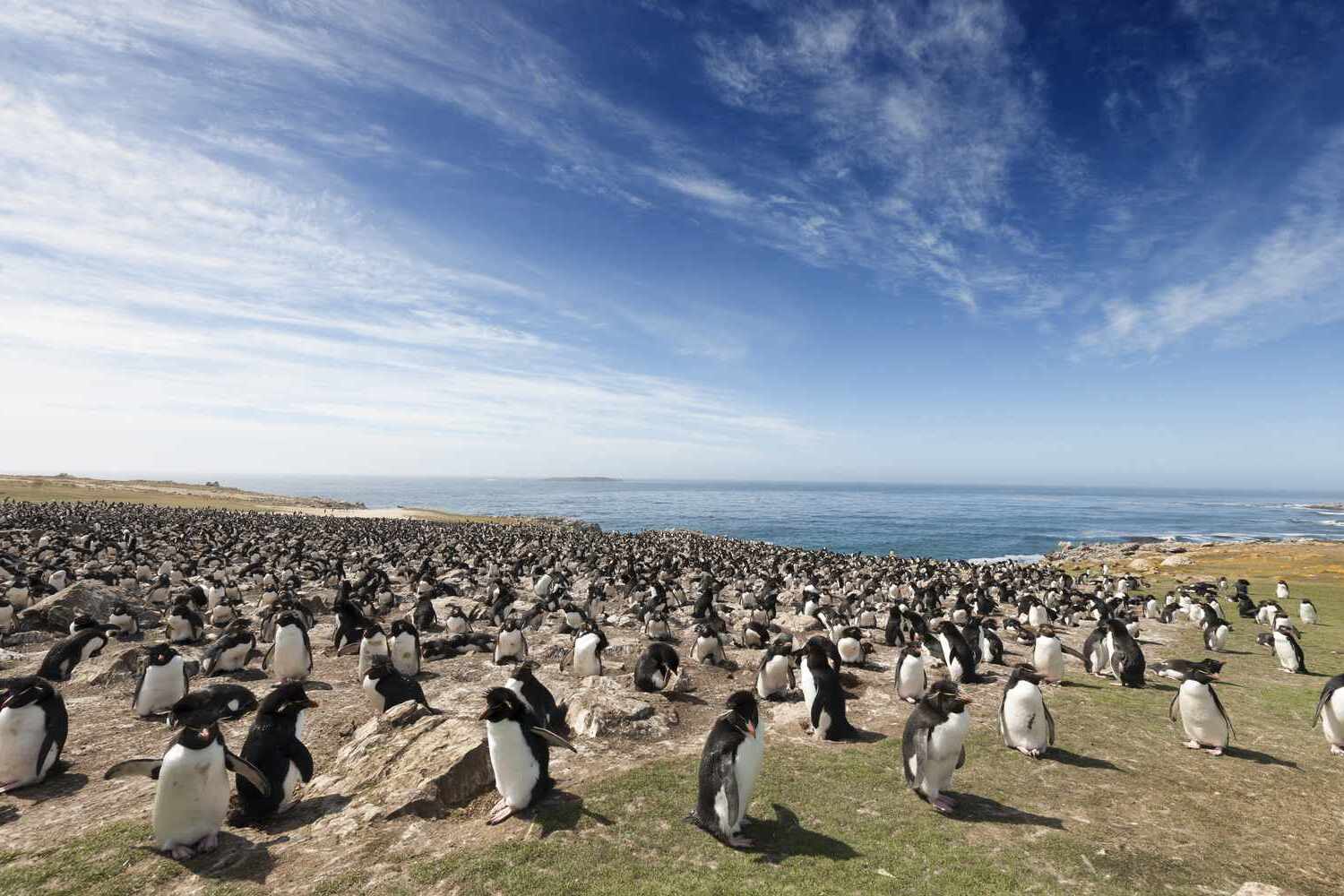
The Falkland Islands, a remote archipelago in the South Atlantic Ocean, often spark curiosity due to their unique location and history. Did you know that these islands are home to more sheep than people? With a population of around 3,400, the Falklands boast a rich tapestry of wildlife, including five species of penguins. Interestingly, the islands have been a point of contention between the United Kingdom and Argentina, leading to the Falklands War in 1982. Despite their isolation, the islands offer stunning landscapes, from rugged coastlines to rolling hills. Want to learn more about this fascinating place? Here are 12 intriguing facts about the Falkland Islands that will surprise you!
Location and Geography
The Falkland Islands are a fascinating group of islands located in the South Atlantic Ocean. Let's dive into some intriguing facts about this unique place.
-
The Falkland Islands are situated about 300 miles east of the coast of Argentina and 700 miles north of the Antarctic Circle. This remote location contributes to their unique ecosystem.
-
The archipelago consists of two main islands, East Falkland and West Falkland, along with over 700 smaller islands. This vast number of islands provides diverse habitats for various wildlife species.
-
The total land area of the Falkland Islands is approximately 4,700 square miles, making them slightly smaller than the state of Connecticut. Despite their small size, the islands boast a rich variety of landscapes, from rugged mountains to sandy beaches.
History and Politics
The history and political status of the Falkland Islands have been subjects of international interest and conflict.
-
The islands were first sighted by Europeans in the 16th century, with the first recorded landing by English navigator John Davis in 1592. This early discovery set the stage for future claims and settlements.
-
The sovereignty of the Falkland Islands has been disputed between the United Kingdom and Argentina for many years. The most notable conflict occurred in 1982, when Argentina invaded the islands, leading to a brief but intense war with the UK.
-
Today, the Falkland Islands are a British Overseas Territory, with a high degree of self-governance. The local government handles most internal matters, while the UK is responsible for defense and foreign affairs.
Wildlife and Nature
The Falkland Islands are home to an incredible array of wildlife, making them a paradise for nature enthusiasts.
-
The islands are famous for their large colonies of penguins, including species such as the King, Gentoo, Magellanic, and Rockhopper penguins. These charming birds attract tourists from around the world.
-
The Falkland Islands also host a significant population of sea lions and elephant seals. These marine mammals can often be seen basking on the shores or swimming in the surrounding waters.
-
Birdwatchers will be delighted by the diverse birdlife on the islands, including the Black-browed Albatross and the Striated Caracara. The islands' varied habitats support over 200 bird species.
Economy and Culture
The economy and culture of the Falkland Islands are shaped by their remote location and unique environment.
-
The primary industries on the islands are fishing, agriculture, and tourism. The rich fishing grounds around the islands provide a valuable source of income, while sheep farming remains a traditional way of life.
-
The Falkland Islands have a small but vibrant community, with a population of around 3,400 people. Most residents live in the capital, Stanley, which offers a mix of British and local influences.
-
The culture of the Falkland Islands reflects their British heritage, with English being the official language and many British customs and traditions observed. However, the islands also have their own unique identity, shaped by their isolation and natural surroundings.
Final Thoughts on the Falkland Islands
The Falkland Islands offer a unique blend of history, wildlife, and natural beauty. From their strategic importance in global conflicts to their rich biodiversity, these islands have much to offer. The penguin colonies, seals, and albatrosses make it a haven for nature lovers. The British and Argentine influences add layers of cultural depth. Despite their remote location, the islands are accessible and welcoming to visitors. The local community is known for its hospitality and resilience. Whether you're a history buff, a wildlife enthusiast, or just looking for a unique travel destination, the Falkland Islands have something for everyone. So, pack your bags and get ready to explore this fascinating part of the world.
Was this page helpful?
Our commitment to delivering trustworthy and engaging content is at the heart of what we do. Each fact on our site is contributed by real users like you, bringing a wealth of diverse insights and information. To ensure the highest standards of accuracy and reliability, our dedicated editors meticulously review each submission. This process guarantees that the facts we share are not only fascinating but also credible. Trust in our commitment to quality and authenticity as you explore and learn with us.


